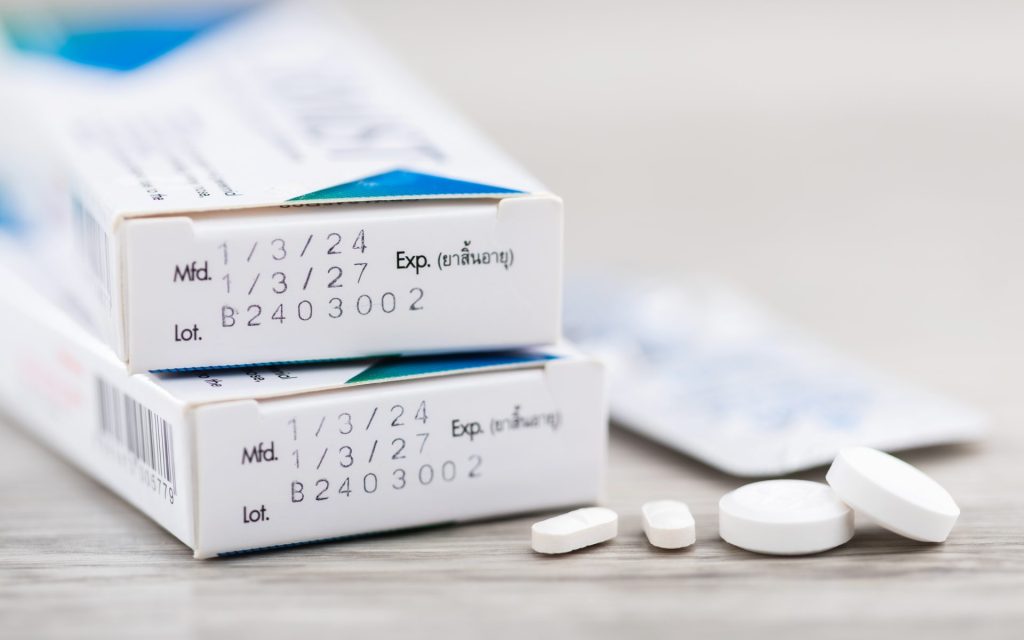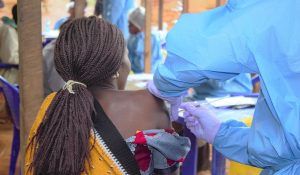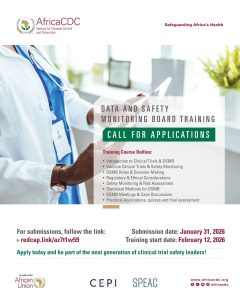Somalia and Djibouti are showing that, even in complex and challenging environments, it is possible to build systems that protect public health and foster trust. The two countries have made major strides by introducing national pharmacovigilance systems — tools that help monitor and ensure the safety of medicines.
Pharmacovigilance is the process and science of monitoring the safety of medicines as they are used by patients. It helps health workers and regulatory authorities detect adverse drug reactions, and substandard or falsified products, and respond effectively to emerging safety concerns.
For many countries in Africa, where most medicines are imported and health systems are often under strain, having a robust pharmacovigilance system is crucial to ensuring the safety of medicines and maintaining public trust. Without such systems, harmful drug reactions or substandard medicines can go unnoticed.
A single batch of low-quality medicines or a new vaccine with unexpected side effects can cause serious harm and reduce public trust. Pharmacovigilance acts as an early warning system, helping ensure that treatments remain safe and effective.
In recent years, Somalia and Djibouti have seen a welcome increase in the availability of vaccines and medicines. However, with greater access comes greater risk. Until recently, neither country had a formal mechanism to report or investigate problems related to medicine safety.
That is now changing. With support from the Africa Centres for Disease Control and Prevention (Africa CDC), the World Health Organization (WHO), and other partners, both countries have taken major steps to build national pharmacovigilance systems. Health workers have been trained, new reporting tools introduced, and reports are now being submitted to VigiBase, the WHO’s global platform for safety reports on adverse reactions to medicines and vaccines.
In doing so, Somalia and Djibouti are contributing medicine safety data to global networks, helping flag concerns more quickly and learning from the experiences of other countries.
“The progress made by Somalia and Djibouti marks a turning point in strengthening pharmacovigilance in the region,” said Dr Alemayehu Duga, Head of the Pharmacovigilance Unit at Africa CDC. “By establishing the systems, tools and capacities needed to monitor medicine and vaccine safety, both countries are not only protecting patients today but also building the foundation for a safer, more accountable health system tomorrow.”
The COVID-19 pandemic highlighted the critical need for robust pharmacovigilance systems. Countries with strong systems addressed vaccine side effects swiftly and reassured the public, while others struggled with misinformation, fear, and delays in vaccine uptake. This experience underscored the importance of ensuring medicine safety, particularly in regions that rely heavily on imports.
Africa imports over 70% of its medicines, many passing through complex supply chains that increase risks such as damage, expiration, or counterfeiting. As new treatments and vaccines are introduced for diseases like malaria, tuberculosis, and non-communicable conditions, monitoring their real-world safety is essential.
Yet pharmacovigilance in Africa faces significant challenges. Estimates suggest that over 10% of medicines are substandard or falsified. Moreover, the continent contributes less than 1% of global safety reports to VigiBase, a critical under-reporting issue that hinders effective monitoring.
Nevertheless, progress is being made. Eight African countries — Egypt, Ghana, Nigeria, Rwanda, Senegal, South Africa, Tanzania, and Zimbabwe — have attained the WHO’s Maturity Level 3 (ML3) status, indicating strong regulatory systems capable of ensuring the safety, efficacy, and quality of medical products. ML3 status helps reduce the use of substandard medicines and boosts public trust, although it remains a rare achievement.
The advances made in Somalia and Djibouti are part of a broader effort supported by the Saving Lives and Livelihoods (SLL) programme, funded by the Mastercard Foundation. This initiative aims to boost COVID-19 vaccine uptake while strengthening public health systems across Africa. A key component is helping all African Union Member States to establish or improve pharmacovigilance systems.
Akros Research, a key regional partner, has supported this work by building local capacity, deploying tools, and promoting sustainable systems for monitoring medicine and vaccine safety.
“Across the continent, many countries still lack the essential systems needed to detect and respond to medicine and vaccine safety concerns, especially during public health emergencies when rapid action is critical. Without these safeguards, lives are at risk and public trust in health interventions can quickly erode,” said Dr Mosoka Fallah, Acting Head of Science and Innovation at Africa CDC.
“The progress made in Somalia and Djibouti shows what’s possible with focused support and national commitment.”
While much has been achieved, the work continues. More training, better digital tools, and stronger coordination between health workers, clinics, and government agencies will be required to keep these systems running smoothly.
With Africa CDC at the forefront, the continent is working to gain greater control over the production of the vaccines and medicines it needs. The African Union (AU) has set an ambitious goal: for Africa to produce 60% of its vaccines locally by 2040, up from the current rate of less than 5%.
This push is driven by hard lessons learned during the COVID-19 pandemic, when African countries were pushed to the back of the global vaccine supply chain. The result was delayed access to life-saving doses, leaving millions unprotected while wealthier nations secured their supplies first. Reducing this dependence through local manufacturing is now seen as essential for health sovereignty and pandemic preparedness.
“Now is the time to better support African manufacturers by encouraging technology transfer agreements that will rapidly expand the capacity of our local industries, and by providing tailored financing solutions that overcome the barriers to market entry,” said Africa CDC Director General Dr Jean Kaseya.
This momentum is already yielding measurable results. Twenty-three manufacturers now produce vaccines across various countries, with three set to supply eight antigens for Africa within five years. As vaccine production ramps up, pharmacovigilance ensures safety. Somalia and Djibouti are demonstrating that progress is possible even under the most challenging conditions.
Moreover, what began as foundational support is now evolving into sustained national action. Building on this momentum, Africa CDC is working to strengthen long-term capacity by supporting countries to implement robust safety surveillance systems for vaccines and therapeutics used during public health emergencies.
In Somalia, efforts are underway to embed pharmacovigilance into the health system through nationwide training, broader adoption of digital tools, and the rollout of standardised reporting forms, all aimed at significantly boosting reports of adverse events by the end of 2025.
In Djibouti, the SLL programme aims to strengthen the national pharmacovigilance infrastructure by establishing a dedicated unit, implementing digital reporting platforms, and enhancing supervision.
All these forward-looking investments are not just about systems and forms, they signal a shift in mindset, where medical safety becomes a shared responsibility and a core part of national health priorities.







